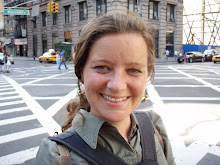February 13: Reacting to Cartoons
On the day that I came back, a protest against the Danish cartoons published in French papers picked up steam, spinning out of control leading to a riotous mass to destroy property, damage cars, attack western journalist mistaken for Danes, set the Danish Embassy on fire, desacrate a church in the Christian neighborhood of Achrafyie.
This would seem to be the first protest that we have experienced in the past year to have turned so violent as quickly as it did.
As usual different conspiracy theories spread like wildfire throughout the city. Just under 200 hundred were arrested.
National press ran the banner that Syrian and Palestinian elements had instigated the upheaval. As the week went on, this was contested.
Different articles appeared, one of which was excellent written by commentator to the Daily Star, Michael Young. Young skeptical of the accusation, put forth the argument that in fact the protests were supported by Sunni Lebanese political parties attempting to galvanize the more religious popular base, by backing a protest against the cartoons.
The purpose of Young's article is to unveil that hardlline Sunni factions exist in Lebanon, adding yet another layer to the already complex make up of Lebanese society.
While living in central Beirut, it is rare to cross paths with hardline Sunnis but certainly their presence is felt stronger when moving through poor neighborhoods, and up to the northern city of Tripoli, which can sometimes seem to have an oppresive atmosphere for travelers.
In the meantime, on February 10, the Foundation for Human and Humanitarian Rights in Beirut issued a statement expressing that the reported arrests were not only of rioters. At the press conference, the organization Haya Bina, explained that other arrests took place during the riots and throughout the country.
The non-for-profit questioned the use of Syrians and "outsiders" as scapegoats for a clearly backed Lebanese protest
spinning out of control and becoming violent.
Both Young and Haya Bina point to a face of Lebanon which is not often discussed in the media: an Islamist presence in the country which may take advantage of public events as political opportunities to be heard.
The problem however, is that an outbreak of violence, which draws negative international attention to Beirut, unnerves and increases levels of resentment felt in other communities which make up Lebanon. The country's government holds together with what seems to an outside observer a string.
News reports changed ton over the week so as to make sure that the opposition block made up of Christians, Sunnis and Druze stays together. A classical and harmonious line to keep the peace: blame the outsiders. It makes things easier.
If anything, the country feels fragile, tense. We will have to see what happens tomorrow during the 1 year
commemoration of Hariri's death.
This would seem to be the first protest that we have experienced in the past year to have turned so violent as quickly as it did.
As usual different conspiracy theories spread like wildfire throughout the city. Just under 200 hundred were arrested.
National press ran the banner that Syrian and Palestinian elements had instigated the upheaval. As the week went on, this was contested.
Different articles appeared, one of which was excellent written by commentator to the Daily Star, Michael Young. Young skeptical of the accusation, put forth the argument that in fact the protests were supported by Sunni Lebanese political parties attempting to galvanize the more religious popular base, by backing a protest against the cartoons.
The purpose of Young's article is to unveil that hardlline Sunni factions exist in Lebanon, adding yet another layer to the already complex make up of Lebanese society.
While living in central Beirut, it is rare to cross paths with hardline Sunnis but certainly their presence is felt stronger when moving through poor neighborhoods, and up to the northern city of Tripoli, which can sometimes seem to have an oppresive atmosphere for travelers.
In the meantime, on February 10, the Foundation for Human and Humanitarian Rights in Beirut issued a statement expressing that the reported arrests were not only of rioters. At the press conference, the organization Haya Bina, explained that other arrests took place during the riots and throughout the country.
The non-for-profit questioned the use of Syrians and "outsiders" as scapegoats for a clearly backed Lebanese protest
spinning out of control and becoming violent.
Both Young and Haya Bina point to a face of Lebanon which is not often discussed in the media: an Islamist presence in the country which may take advantage of public events as political opportunities to be heard.
The problem however, is that an outbreak of violence, which draws negative international attention to Beirut, unnerves and increases levels of resentment felt in other communities which make up Lebanon. The country's government holds together with what seems to an outside observer a string.
News reports changed ton over the week so as to make sure that the opposition block made up of Christians, Sunnis and Druze stays together. A classical and harmonious line to keep the peace: blame the outsiders. It makes things easier.
If anything, the country feels fragile, tense. We will have to see what happens tomorrow during the 1 year
commemoration of Hariri's death.



1 Comments:
This is very interesting, You're a very skilled blogger. I've joined your feed and look forward to seeking more of your magnificent post. Also, I've shared your website in my social networks!
Post a Comment
<< Home